A week full of meetings, presentations, discussion, networking, and much more lies behind representatives of the German-Canadian NephroCAGE consortium. In August 2022, German members of the NephroCAGE consortium visited their peers in Canada. Due the spread of the COVID-19 pandemic, NephroCAGE partners have worked together using online tools from the beginning on. But after months of restrictions to the ongoing COVID-19 pandemics, it was the premier for most to meet in person. In the following, you can find a brief summary of the visit and selected agenda points.
- Members of the German-Canadian NephroCAGE consortium in front of the CHUM in Montréal, QC (f.l.t.r: Andreas Schimanski, Klemens Budde, Héloise Cardinal, Marcel Naik, Verena Graf, Konstantin Pandl, Matthias Niemann, Ruth Sapir-Pichhadze, and Matthieu-P. Schapranow).
- NephroCAGE team members visiting the HLA laboratory at McGill University Health Centre – Research Center.
- Prof. Dr. Klemens Budde presenting in front of medical trainees at MUHC-RC.
- NephroCAGE team members meeting in front of UBC in Vancouver, BC (f.l.t.r.: Aadil Rasheed, Matthieu-P. Schapranow, Matthias Niemann, Marcel Naik, Andreas Schimanski, Verena Graf, Konstantin Pandl, Sabina Dobrer, Klemens Budde, Karen Sherwood, Paul Keown, Franz Fenninger).
- UBC HLA laboratory.
NephroCAGE in Montréal, Québec, CA
The journey of the German represents of the NephroCAGE consortium starts at the Canadian East coast by visiting Montréal in Canada’s Québec province.
Mon Aug 15, 2022: NephroCAGE Consortium Assembly generously hosted by CHUM
Members of all collaboration partners met for the annual consortium assembly. This internal meeting is used amongst others to report to each-others on individual project progress, approaching milestones and project decision, and align on a joint dissemination strategy.
Tue Aug 16, 2022: 2nd International NephroCAGE Symposium generously hosted by McGill
The NephroCAGE consortium is represented on international public events to share latest project results and findings on applying AI to support nephrologists in kidney transplant. Moreover, the NephroCAGE symposium was established to enable a unique, multidisciplinary exchange between experts from multiple disciplines, e.g., nephrologists, data science, computer science, and statistics. This year’s event was designed as a hybrid format, i.e., attendees in Montréal were invited to join in person whereas all other participants joined via video conferencing. The program consisted of two tracks A: Clinical impact of applied AI for kidney transplantations and B: Impact of digital transformation and applied AI on kidney transplantations. For further details about the agenda and presentations, please refer to the event website. We are grateful to see that plenty of people share the NephroCAGE vision. We saw an increase in registered attendees by more than 1/3 compared the last year and received an overwhelming positive feedback from all over the globe.
In the afternoon, subject-matter experts from the NephroCAGE teams and participating institutes were invited to join dedicated workshops to address technical, business, as well as regulatory topics. Furthermore, a visit of the MUHC research center including a lab tour was included to understand existing processes and how data is acquired today during kidney transplant.
Wed Aug 17, 2022: Research Deep Dives
Prof. Dr. Klemens Budde (Charité) provided medical staff at McGill a deep-dive into latest clinical results from Europe’s largest university hospital Charité. Furthermore, Canadian hosts also presented current research projects at CHUM and MUHC to the German visitors.
NephroCAGE in Vancouver, British Columbia, CA
After visiting the Canadian East coast, the German NephroCAGE visitors moved to the West coast to Vancouver in the province British Columbia.
Thu Aug 18 – Fri 19, 2022 NephroCAGE Workshops generously hosted by UBC
Two additional days of internal workshop were prepared for the German visitors in BC. Amongst other, the focus lied on harmonization and integration of transplant data, the analysis of data and the adaption of NephroCAGE clinical prediction models, and the implementation of the NephroCAGE federated learning infrastructure enabling privacy-preserving training of AI models. Furthermore, a tour through the HLA laboratory at Vancouver General Hospital and the UBC campus was not to be missing. Although the schedule was packed, there was still time for 1:1 discussion and networking to other UBC colleagues.
The NephroCAGE consortium
The German-Canadian NephroCAGE consortium combines medical and scientific-technical expertise from Germany and Canada. We jointly create the NephroCAGE federated learning infrastructure enabling privacy-preserving training of clinical prediction models. The latter are built upon latest artificial intelligence algorithms combining German and Canadian transplant data over the past decade. The clinical prediction models are designed together with clinical experts to support nephrologists in identifying to high-risk patients after kidney transplantation earlier.

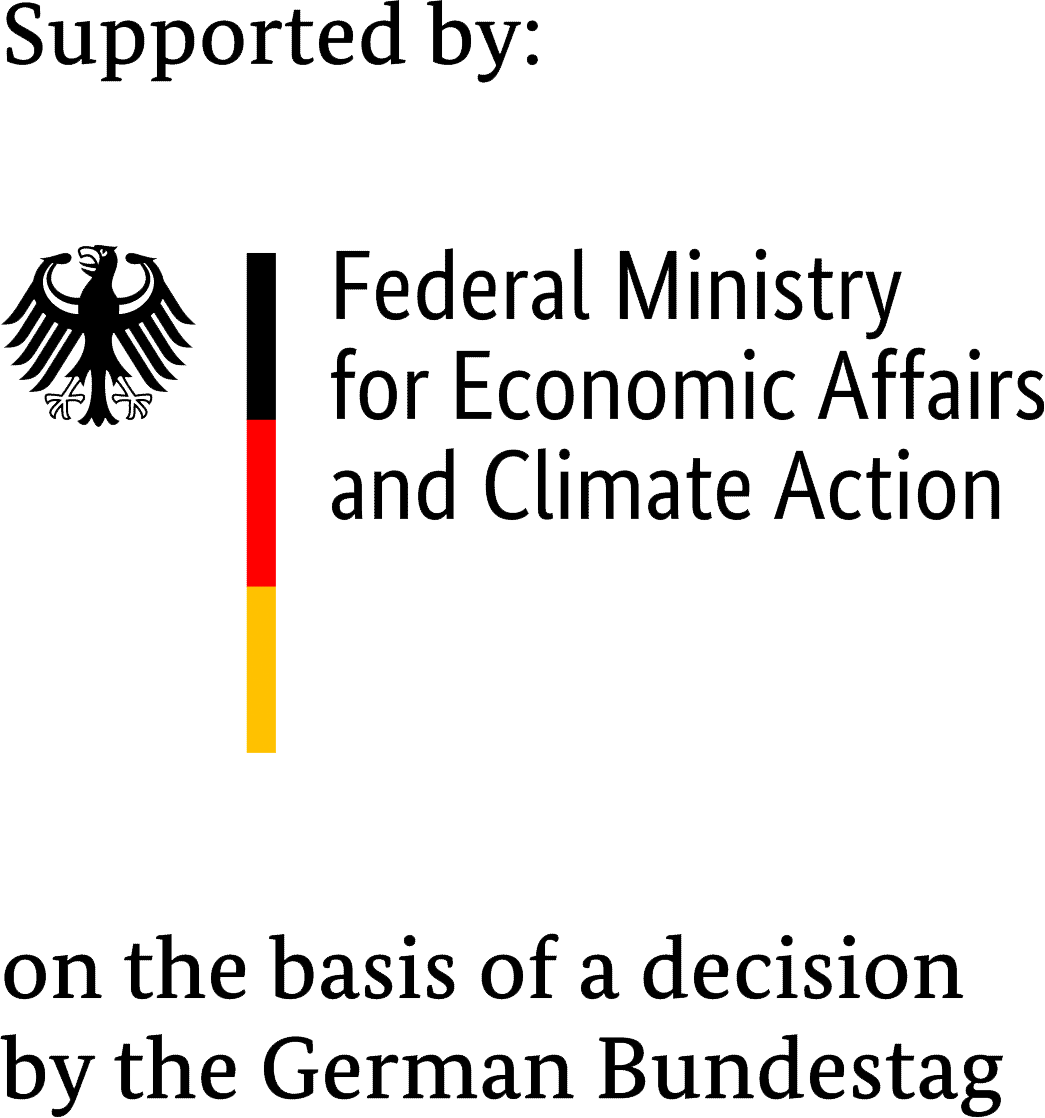
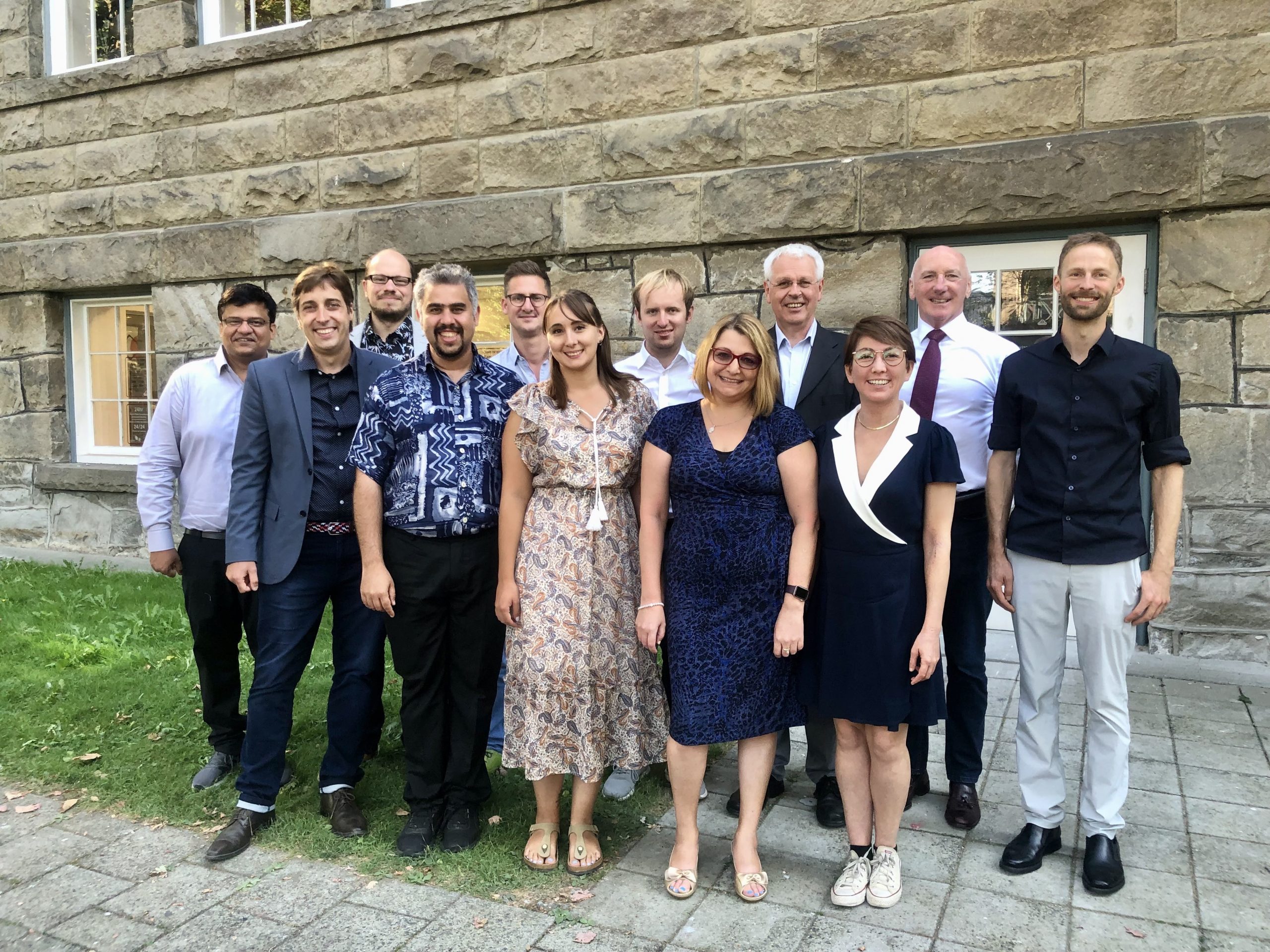
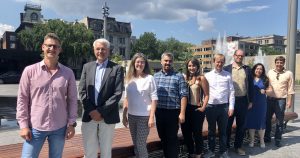
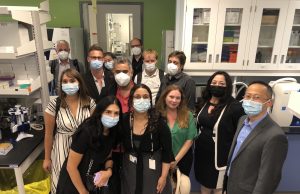
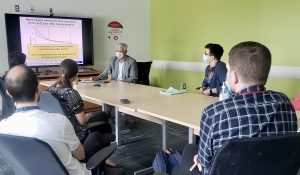
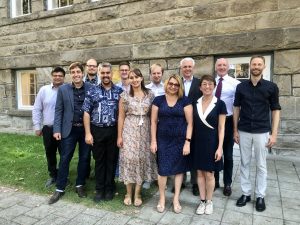
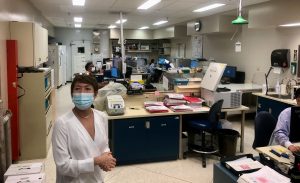
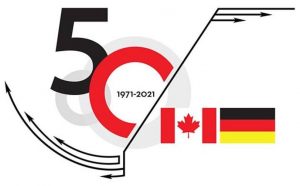
Comments are closed